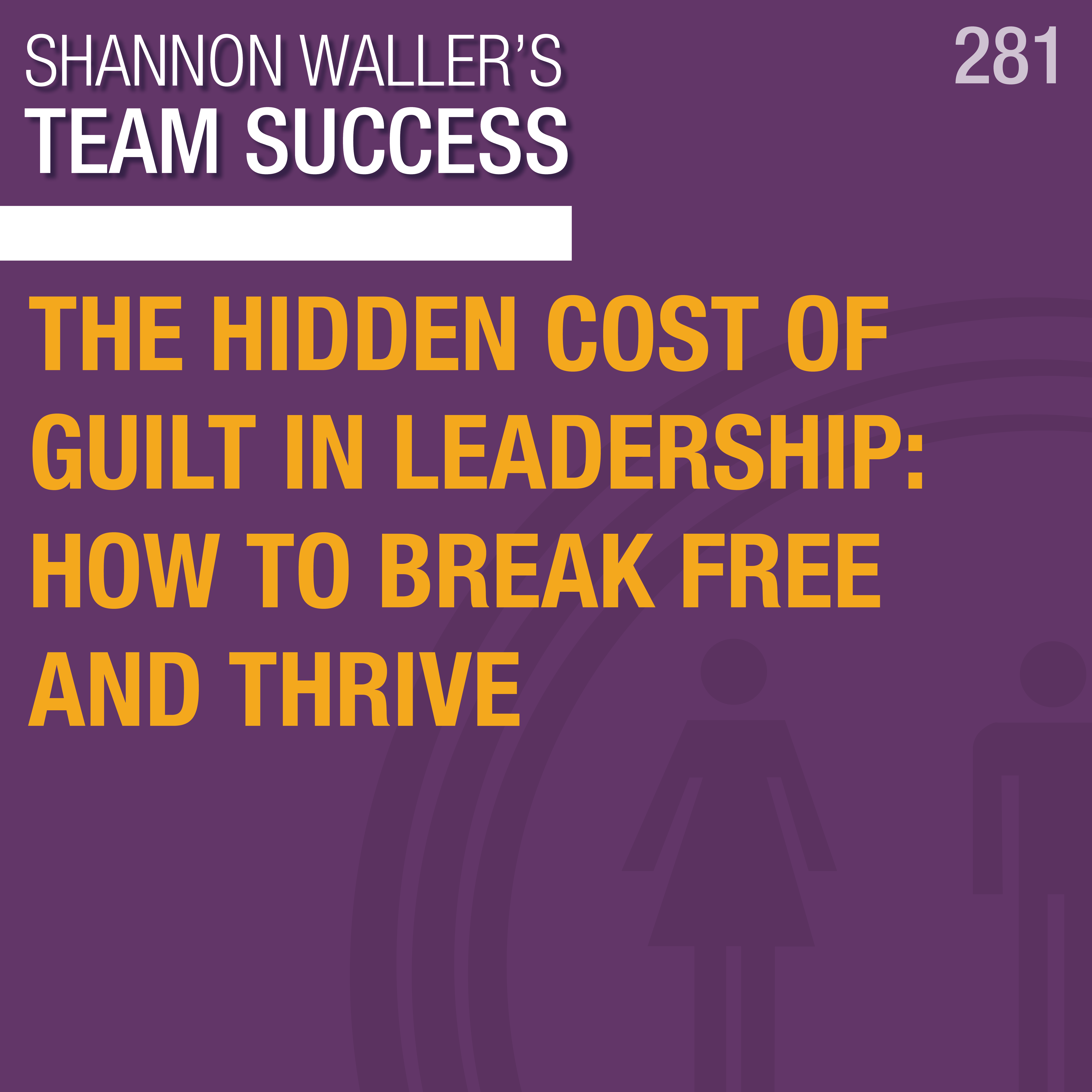
Do you take the time to acknowledge your team’s contributions, or do you overlook their strengths? In this episode, Shannon Waller explores the transformative power of genuine praise in the workplace. Discover how effective recognition can improve team morale, fuel innovation, and drive overall success in your business.
Audio Player
Podcast: Play in new window | Download
Subscribe: Spotify | Email | RSS
Show Notes:
- Is guilt a necessary emotion, or is it just a societal construct that holds us back?
- Entrepreneurs can get overwhelmed because they hold on to tasks they feel guilty about delegating.
- Take notice of people who are isolating themselves: are they feeling remorse, regret, or shame?
- Excessive or misplaced guilt leads to negative self-perception and stress without resulting in constructive change.
- Is misplaced guilt preventing you from taking positive action and making progress?
- To avoid situations that will lead to guilty feelings, stay away from commitments where you cannot easily deliver on what’s needed—in other words, stay within areas of your Unique Ability® and strengths.
- Learning about herself through her Kolbe, PRINT®, and CliftonStrengths® profiles has directed Shannon toward areas that result in more productivity, more profitability, and creating more value.
- Common triggers include failing to meet personal or professional expectations and neglecting personal well-being in favor of work commitments.
- Cultural and societal factors contribute significantly to feelings of guilt, often rooted in childhood experiences.
Strategies To Overcome Or Avoid Guilt:
- Reframe Your Mindset
- Question your beliefs about guilt: Is it really true that you’re failing if you don’t respond immediately? Does what you’re feeling match the urgency of the situation?
- Set Clear Boundaries
- Establishing boundaries between work and personal life is crucial for maintaining mental health.
- Free Days™ are essential for rejuvenation; without them, we risk burnout by constantly checking that nothing slips by at work.
- Communicate Expectations
- Clearly communicate your expectations with team members regarding response times to avoid causing unnecessary guilt.
- Also be clear with your clients about not being available 24/7.
- Have Confidence To Say No
- When opportunities don’t align with your priorities, it’s okay to say no graciously.
- Be Compassionate With Yourself
- If you’re not making mistakes, you’re not taking risks and, therefore, not growing.
- If you own a mistake, forgive yourself and ask forgiveness of others, then take steps to ensure you don’t make the same mistake again. You’re not failing; you’re learning.
- Build A Supportive Network
- Shame isolates people. A support network helps people grow.
- Instead of criticizing the person, look to what the behavior was that didn’t work and solutions for improvement.
- Let Go Of Control
- You can be in charge, providing energy and electricity, but you don’t need to be in control of everything.
- Great leaders aren’t perfect; they’re honest, provide direction, and don’t make people feel guilty when they’re not perfect.
- Encourage the team to play offense, not defense so they won’t be made to feel shame, regret, and remorse.
Shannon’s recipe for no guilt: center yourself doing your best work with your best audience.
Resources:
